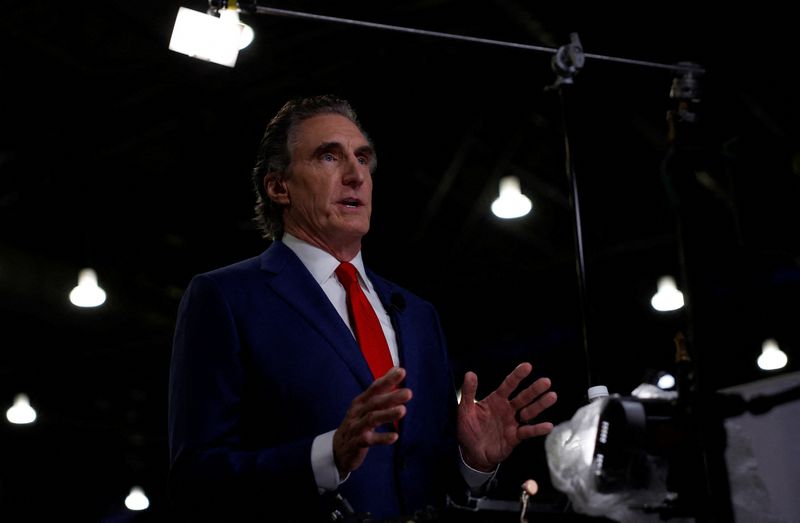Trump's Interior Department nominee says boosting energy key to US security
(Reuters) -Donald Trump's pick to lead the Interior Department, Doug Burgum, said on Thursday he will vigorously pursue the president-elect's goals of maximizing energy production from U.S. public lands and waters, calling it key to national security.
Burgum's comments to lawmakers during his nomination hearing signal a coming sharp turn in policy after President Joe Biden attempted for years to limit oil and gas drilling by reducing federal lease auctions and banning future development in some offshore waters to fight climate change.
"America produces energy cleaner, smarter and safer than anywhere in the world. When energy production is restricted in America, it doesn't reduce demand, it just shifts production to countries like Russia, Venezuela, and Iran – whose autocratic leaders don't care about the environment," Burgum told a U.S. Senate panel considering his nomination.
Maximizing energy output can lower consumer prices, and can be done while ensuring clean air and water, he added.
The Interior Department oversees millions of acres of lands and offshore waters stretching from the Arctic to the Gulf of Mexico, and leases out parcels for drilling operations that now produce around a quarter of the U.S. oil and gas output.
The U.S. is already the world's top oil and gas producer thanks to a years-long drilling boom, mainly on private lands in Texas and New Mexico, fueled by improved technology and strong world demand since Russia's 2022 invasion of Ukraine.
ELECTRICITY 'AT THE BRINK'
Burgum said that, as Interior secretary, he would expand drilling lease auctions on public lands in accordance with the law. He said he would also support permitting reforms that could speed the pace of energy projects, including those that help boost transmission and pipelines feeding the power sector.
"Electricity is at the brink. Our grid is at a point where it could go completely unstable," he said. "We've got to get to work in permitting reform and speeding permitting right now."
Burgum said the U.S. currently has an imbalance of intermittent power sources like wind and solar, and needs to offset that with an increase in baseload generation - like natural gas-fired power plants - that can produce electricity regardless of weather conditions.
"Because if the sun's not shining, the wind's not blowing, and we don't have base load, then we've got brown outs and blackouts," he said.
He also criticized Biden's support for the electric vehicle industry, saying it increases U.S. dependence on critical minerals from China.
Burgum, who served as governor of North Dakota - a big oil and wind power producer - is also being considered to head a new national council to coordinate policies to boost U.S. energy output after Trump takes office.
He declined to say if he would support the wind power industry if confirmed by the Senate to lead the Interior Department. Trump has vowed to put an end to the industry, which he says is too expensive and can harm whales offshore.
North Dakota ranks third among U.S. states, after Texas and New Mexico, in crude oil reserves and production, according to the U.S. Energy Information Administration.
Source: Investing.com
